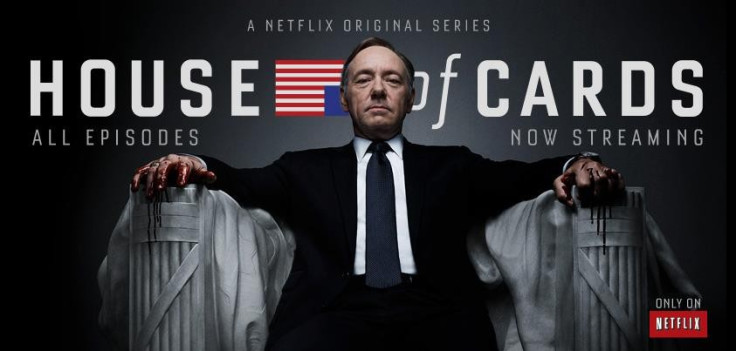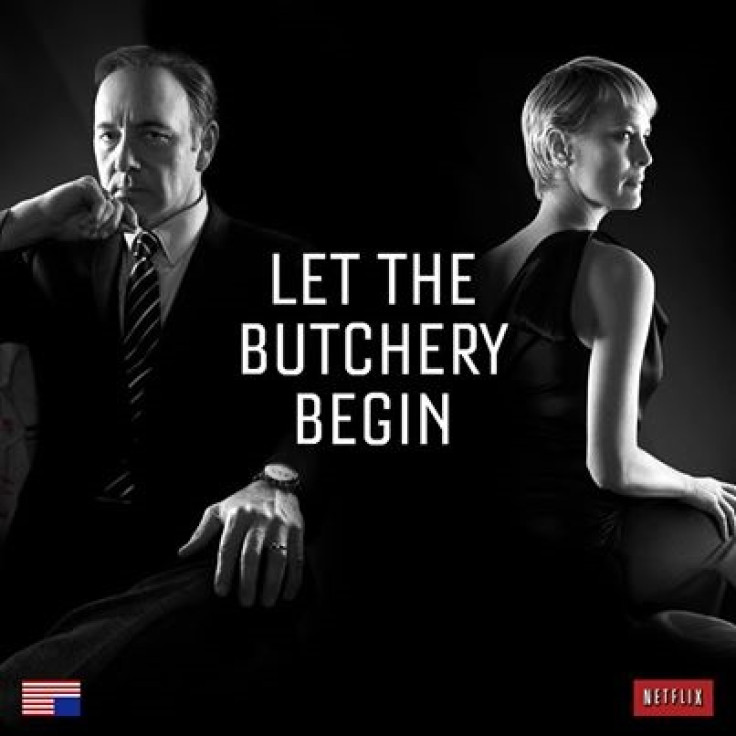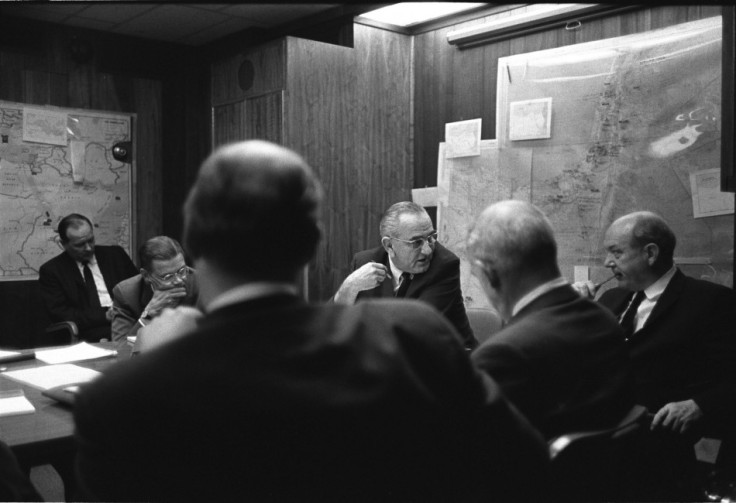House of Cards Season 2: Will President Obama be Watching? Probably

The trailer for Season 2 of Netflix's explosive series House of Cards opens with Minority Whip Frank Underwood taking the oath of office to be appointed vice president of the United States (oh, spoiler? Sorry. Well if you didn't know that by now, you're living under a rock).
"... and that I will well and faithfully discharge the duties of the office on which I am about to enter... So help me God," says Underwood (Kevin Spacey). Cut to a camera shot from below of Frank, as he looks down to meet you eye to eye in a Shakespearean aside.
In an instant, it's just you and him -- and he's about to tell you something intimate, something profound, about power and politics in America's capital. "One heartbeat away from the presidency and not a single vote cast in my name," he drawls in that syrupy southern accent. "Democracy is so over-rated."
These days, democracy in Washington [itals] is [end itals] so over-rated. In fact, it's non-existent. Lawmakers sent to the hub of American democracy to solve problems can't agree on anything. The last Congress set a record as the least productive in the nation's 225-year history.
Said one Ohio Republican as he resigned over endless partisan bickering, "We didn't used to fight about everything, and today we fight about everything."
But not in Underwood's world. As Spacey himself has said, people watch House of Cards because "he gets shit done." Indeed he does. Like toppling careers, planting news stories, usurping the vice president, even committing murder when push comes to shove. No gridlock in Frank's universe.
Despite the petty partisanship that now reigns in DC, Democrats, Republicans, Independents, Tea Partyers, the Blue Dogs, the moderates -- everyone from the White House to the Capitol to lobbyist row along K Street -- agrees on one thing: "House of Cards" rules supreme.

As the countdown to Season 2 winds down (Netflix has picked Valentine's Day, Feb 14, to drop all 13 new episodes), amity rules on the Hill. Already "watch parties" are being planned, without regard to political affiliation (a modern BYOB, if you will -- Bring Your Own Bipartisanship). The same wonky throngs that gather to watch the State of the Union address and thrill over a congressional filibuster are atwitter with anticipation.
One veteran political newsman, who asked to remain nameless because of his shameless devotion to the show, says the inside-the-Beltway crowd loves House of Cards because "it's authentic."
"Well, not authentic, I guess," he clarifies. "It's more like what Washington would be like if it were a television show. On cable, so you could use lots of profanity. And if you could show how everyone's always boozing away and hooking up in drunken liaisons. For political reasons, of course -- and power."
And so it is. On TV. In reality, Washington, for all its facade, can a be tedious place: While C-SPAN captures every word uttered on the House and Senate floor, few viewers know the chambers are virtually empty.
Almost no one would watch a DC-based show for its snail-like pace of legislation, or the meetings held by more than 100 panels in the House alone, like the "Subcommittee on the Efficiency and Effectiveness of Federal Programs and the Federal Workforce."
In House of Cards, though, every shot of the storied chamber floors come at the height of a crucial vote; each day brings another dramatic development that moves the ball well up the field. And Underwood wields supreme power, like Lyndon Johnson when he was president, twisting arms here, spreading favours there, and always -- always -- remembering your children's names.
Still there are great truths under the surface of the show. Are strong men in Washington backed by stronger, even ruthless, women like Claire Underwood? Absolutely. Is there always a quiet operator like Doug Stamper, Underwood's chief of staff, or protege-turned-lobbyist Remy Danton, working in the shadows? You bet.
Do reporters really sleep with their sources, party leaders and their ambitious wannabes? Does the Pope wear a funny hat? And could a lawmaker actually be hooked on cocaine and get away with it, like Peter Russo? Sure. Just last month, Florida Rep. Trey Radel, a first-term Republican, resigned after a conviction on cocaine possession charges.

Smaller details ring even more true. Take the bill-signing scene from Season One. A throng of supporters grouped for photo ops with the president, who uses a dozen pens to sign his name so each prominent member can take one home. Even more real, the vice president becomes agitated with his boss over a perceived slight: "I never got my pen!"
In a huff, he storms off and resigns. Hyperbole? Remember when House Speaker New Gingrich shut down the US government after Bill Clinton made him use the back door to board Air Force One? Washington is a petty and vindictive place.
Season Two's trailer blasts through so much so fast that it's hard to figure out just what's in store (just why is Underwood hurling his juicy steak into a pool as a huge German Shepherd leaps after it?).
But one thing is clear: It's going to get ugly. Deliciously ugly.
"I want him obliterated," Franks says at one point.
"More than that, let's make him suffer," Claire hisses.
Cut back to the shot from below Frank as he looks into the camera. "I don't know whether to be proud, or terrified."
Joseph Curl is one of America's most forthright political writers, most notably as senior White House correspondent for the Washington Times. He is currently editiorthe Drudge Report, arguably the world's most influential news aggregators.
You can read the Drudge Report by clicking here, and find out more about Joseph and his views on Twitter @JosephCurl.
© Copyright IBTimes 2024. All rights reserved.






